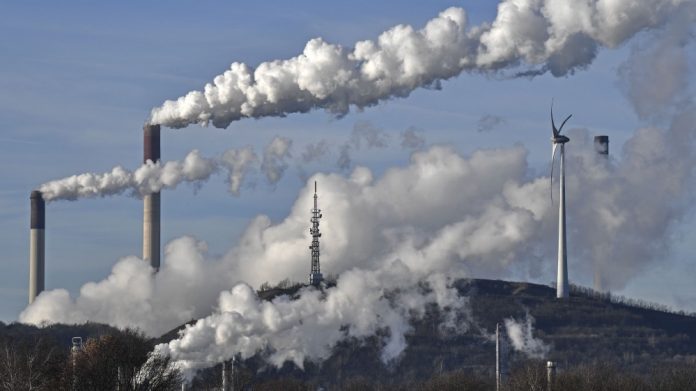The world hit another new record high for heat-trapping carbon dioxide in the atmosphere, despite reduced emissions because of the coronavirus pandemic, scientists announced Thursday.
Atmospheric concentrations of CO2 have been marching upwards for decades due to humanity’s activities. Figures published today by the Scripps Institution of Oceanography in San Diego, California, show a new monthly high of 417 parts per million (ppm) on average in May, up from 414.8 ppm a year before.
Monthly concentrations only breached the symbolic 400 ppm milestone six years ago, and growth has accelerated in the past decade. While the covid-19 crisis is expected to cut global emissions by the biggest amount since the second world war, that fall is likely to have little effect on the atmospheric CO2 that is driving climate change.
Richard Betts at the UK Met Office says: “It’s not surprising. The analogy I use is filling a bath from a tap. The water from the tap is the emissions and the water level in the bath is the concentrations. We’re still putting CO2 into the atmosphere, it’s just building up slightly less fast than before. What we need to do is turn the tap off.”
In a statement, the Scripps team said the fall in emissions from the pandemic wasn’t big enough to stand out against natural variations in atmospheric concentrations of CO2 caused by changes in soil, plants and the weather. Although CO2 emissions dropped by 17 per cent in early April, even bigger drops of 20 to 30 per cent would need to be sustained for a year to slow the growth of atmospheric CO2 concentrations, said the team.
By the end of the year, the Met Office expects concentrations to be up 2.48 ppm on 2019 levels, not that different to the 2.8 ppm expected before the virus outbreak. “It’s certainly not large enough to affect the climate,” says Betts.








